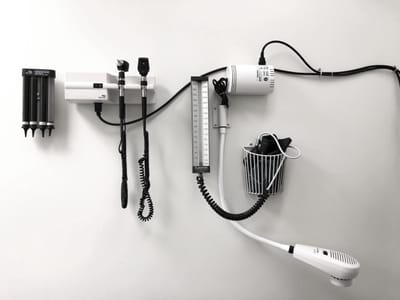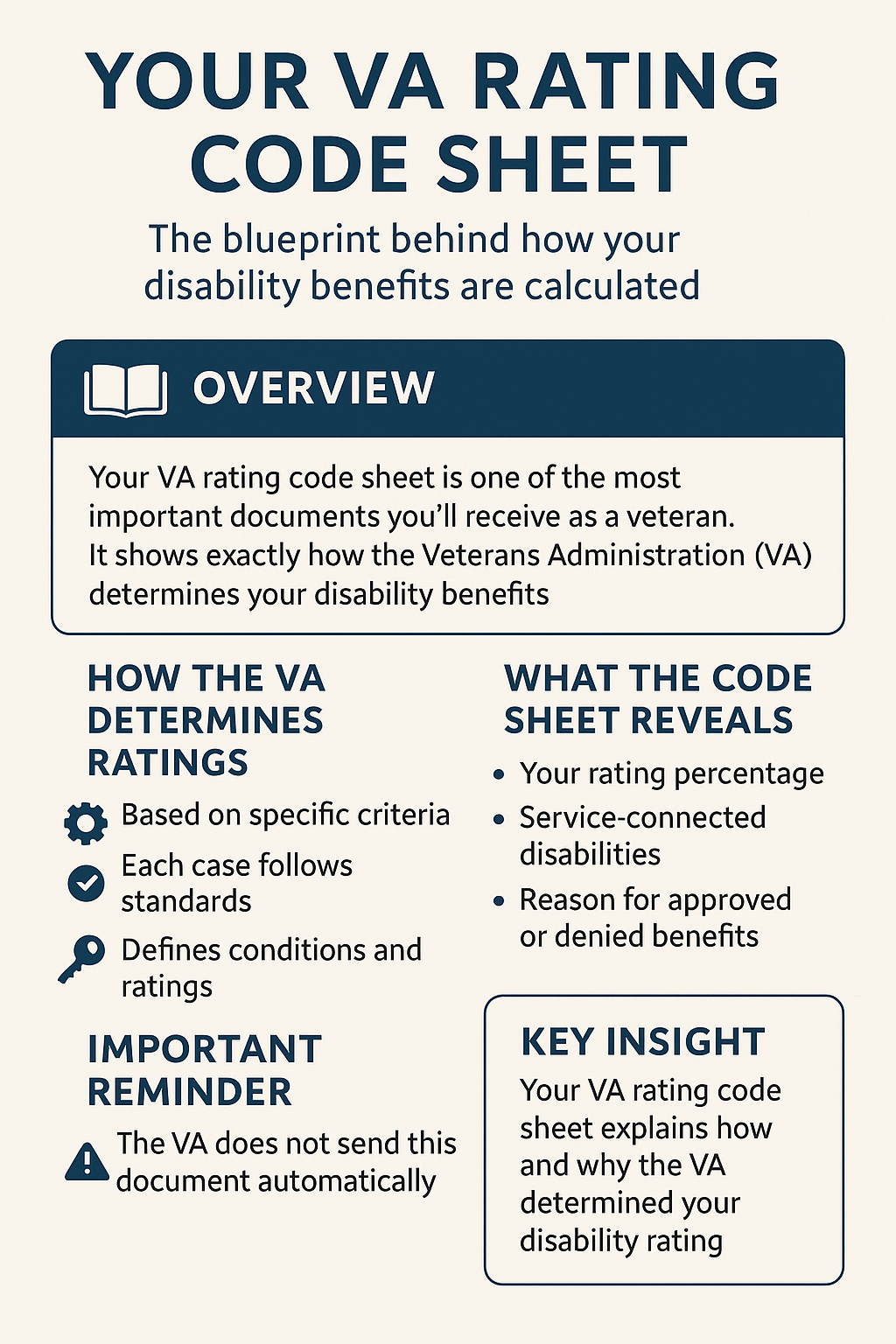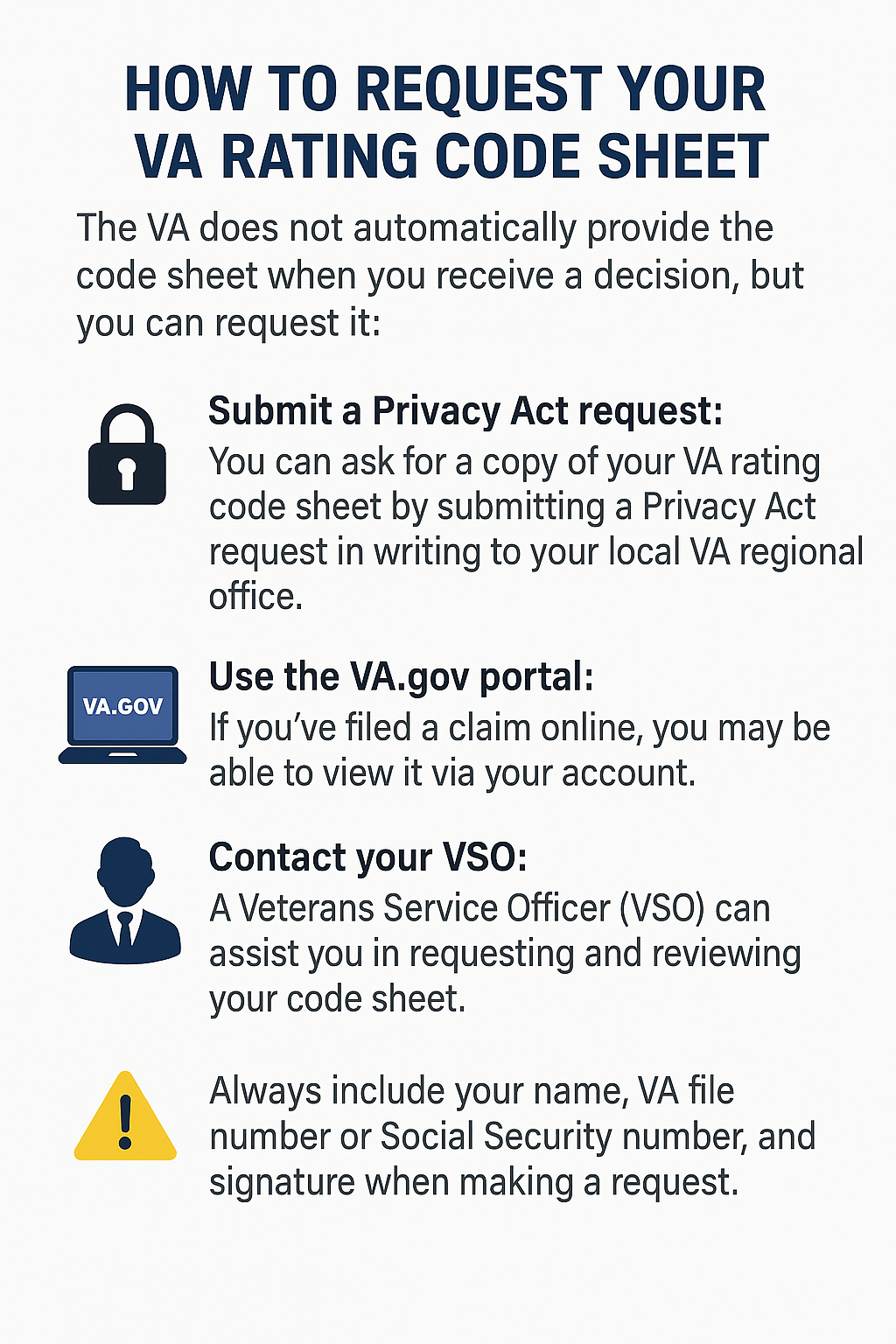Calculating combined disability ratings using VA Math starts with understanding that the VA views each new disability in terms of its impact on your remaining efficiency. For example, if you have a 30% disability, the VA considers you 70% efficient.
To begin the calculation process:1. List your disabilities from highest to lowest percentage.
2. Start with your highest rated disability.
3. Subtract that percentage from 100% to get your remaining efficiency.
4. Apply the next highest disability percentage to your remaining efficiency.
5. Continue this process for all your rated disabilities.For example, if you have disabilities rated at 50%, 30%, and 20%:
Start with 50%: 100% – 50% = 50% efficiency remaining
– Apply 30% to the remaining 50%: 30% of 50% = 15% efficiency remaining
– Subtract 15% from 50%: 50% – 15% = 35% efficiency remaining
– Apply 20% to the remaining 35%: 20% of 35% = 7% efficiency remaining– Subtract 7% from 35%: 35% – 7% = 28% efficiency remaining
Your combined rating would be 100% – 28% = 72%, which rounds to 70%.
The VA Combined Ratings Table simplifies the complex calculations of VA Math. Here’s how to use it:1. Find your highest disability rating in the left column.
2. Locate your next highest rating along the top row.
3. The number where these two intersect is your combined rating for those two disabilities.
4. If you have more than two disabilities, use this new combined rating to find the intersection with your next highest disability.
5. Repeat until all disabilities are accounted for.
6. Round the final number to the nearest 10%.
For example, using the ratings 50%, 30%, and 20%: 1. Find 50 in the left column and 30 along the top. The intersection is 65. 2. Now find 65 in the left column and 20 along the top. The intersection is 72. 3. Round 72 to 70%, which is your final combined rating.
| 10 | 20 | 30 | 40 | 50 | 60 | 70 | 80 | 90 | |
|---|---|---|---|---|---|---|---|---|---|
| 19 | 27 | 35 | 43 | 51 | 60 | 68 | 76 | 84 | 92 |
| 20 | 28 | 36 | 44 | 52 | 60 | 68 | 76 | 84 | 92 |
| 21 | 29 | 37 | 45 | 53 | 61 | 68 | 76 | 84 | 92 |
| 22 | 30 | 38 | 45 | 53 | 61 | 69 | 77 | 84 | 92 |
| 23 | 31 | 38 | 46 | 54 | 62 | 69 | 77 | 85 | 92 |
| 24 | 32 | 39 | 47 | 54 | 62 | 70 | 77 | 85 | 92 |
| 25 | 33 | 40 | 48 | 55 | 63 | 70 | 78 | 85 | 93 |
| 26 | 33 | 41 | 48 | 56 | 63 | 70 | 78 | 85 | 93 |
| 27 | 34 | 42 | 49 | 56 | 64 | 71 | 78 | 85 | 93 |
| 28 | 35 | 42 | 50 | 57 | 64 | 71 | 78 | 86 | 93 |
| 29 | 36 | 43 | 50 | 57 | 65 | 72 | 79 | 86 | 93 |
| 30 | 37 | 44 | 51 | 58 | 65 | 72 | 79 | 86 | 93 |
| 31 | 38 | 45 | 52 | 59 | 66 | 72 | 79 | 86 | 93 |
| 32 | 39 | 46 | 52 | 59 | 66 | 73 | 80 | 86 | 93 |
| 33 | 40 | 46 | 53 | 60 | 67 | 73 | 80 | 87 | 93 |
| 34 | 41 | 47 | 54 | 60 | 67 | 74 | 80 | 87 | 93 |
| 35 | 42 | 48 | 55 | 61 | 68 | 74 | 81 | 87 | 94 |
| 36 | 42 | 49 | 55 | 62 | 68 | 74 | 81 | 87 | 94 |
| 37 | 43 | 50 | 56 | 62 | 69 | 75 | 81 | 87 | 94 |
| 38 | 44 | 50 | 57 | 63 | 69 | 75 | 81 | 88 | 94 |
| 39 | 45 | 51 | 57 | 63 | 70 | 76 | 82 | 88 | 94 |
| 40 | 46 | 52 | 58 | 64 | 70 | 76 | 82 | 88 | 94 |
| 41 | 47 | 53 | 59 | 65 | 71 | 76 | 82 | 88 | 94 |
| 42 | 48 | 54 | 59 | 65 | 71 | 77 | 83 | 88 | 94 |
| 43 | 49 | 54 | 60 | 66 | 72 | 77 | 83 | 89 | 94 |
| 44 | 50 | 55 | 61 | 66 | 72 | 78 | 83 | 89 | 94 |
| 45 | 51 | 56 | 62 | 67 | 73 | 78 | 84 | 89 | 95 |
| 46 | 51 | 57 | 62 | 68 | 73 | 78 | 84 | 89 | 95 |
| 47 | 52 | 58 | 63 | 68 | 74 | 79 | 84 | 89 | 95 |
| 48 | 53 | 58 | 64 | 69 | 74 | 79 | 84 | 90 | 95 |
| 49 | 54 | 59 | 64 | 69 | 75 | 80 | 85 | 90 | 95 |
| 50 | 55 | 60 | 65 | 70 | 75 | 80 | 85 | 90 | 95 |
| 51 | 56 | 61 | 66 | 71 | 76 | 80 | 85 | 90 | 95 |
| 52 | 57 | 62 | 66 | 71 | 76 | 81 | 86 | 90 | 95 |
| 53 | 58 | 62 | 67 | 72 | 77 | 81 | 86 | 91 | 95 |
| 54 | 59 | 63 | 68 | 72 | 77 | 82 | 86 | 91 | 95 |
| 55 | 60 | 64 | 69 | 73 | 78 | 82 | 87 | 91 | 96 |
| 56 | 60 | 65 | 69 | 74 | 78 | 82 | 87 | 91 | 96 |
| 57 | 61 | 66 | 70 | 74 | 79 | 83 | 87 | 91 | 96 |
| 58 | 62 | 66 | 71 | 75 | 79 | 83 | 87 | 92 | 96 |
| 59 | 63 | 67 | 71 | 75 | 80 | 84 | 88 | 92 | 96 |
| 60 | 64 | 68 | 72 | 76 | 80 | 84 | 88 | 92 | 96 |
| 61 | 65 | 69 | 73 | 77 | 81 | 84 | 88 | 92 | 96 |
| 62 | 66 | 70 | 73 | 77 | 81 | 85 | 89 | 92 | 96 |
| 63 | 67 | 70 | 74 | 78 | 82 | 85 | 89 | 93 | 96 |
| 64 | 68 | 71 | 75 | 78 | 82 | 86 | 89 | 93 | 96 |
| 65 | 69 | 72 | 76 | 79 | 83 | 86 | 90 | 93 | 97 |
| 66 | 69 | 73 | 76 | 80 | 83 | 86 | 90 | 93 | 97 |
| 67 | 70 | 74 | 77 | 80 | 84 | 87 | 90 | 93 | 97 |
| 68 | 71 | 74 | 78 | 81 | 84 | 87 | 90 | 94 | 97 |
| 69 | 72 | 75 | 78 | 81 | 85 | 88 | 91 | 94 | 97 |
| 70 | 73 | 76 | 79 | 82 | 85 | 88 | 91 | 94 | 97 |
| 71 | 74 | 77 | 80 | 83 | 86 | 88 | 91 | 94 | 97 |
| 72 | 75 | 78 | 80 | 83 | 86 | 89 | 92 | 94 | 97 |
| 73 | 76 | 78 | 81 | 84 | 87 | 89 | 92 | 95 | 97 |
| 74 | 77 | 79 | 82 | 84 | 87 | 90 | 92 | 95 | 97 |
| 75 | 78 | 80 | 83 | 85 | 88 | 90 | 93 | 95 | 98 |
| 76 | 78 | 81 | 83 | 86 | 88 | 90 | 93 | 95 | 98 |
| 77 | 79 | 82 | 84 | 86 | 89 | 91 | 93 | 95 | 98 |
| 78 | 80 | 82 | 85 | 87 | 89 | 91 | 93 | 96 | 98 |
| 79 | 81 | 83 | 85 | 87 | 90 | 92 | 94 | 96 | 98 |
| 80 | 82 | 84 | 86 | 88 | 90 | 92 | 94 | 96 | 98 |
| 81 | 83 | 85 | 87 | 89 | 91 | 92 | 94 | 96 | 98 |
| 82 | 84 | 86 | 87 | 89 | 91 | 93 | 95 | 96 | 98 |
| 83 | 85 | 86 | 88 | 90 | 92 | 93 | 95 | 97 | 98 |
| 84 | 86 | 87 | 89 | 90 | 92 | 94 | 95 | 97 | 98 |
| 85 | 87 | 88 | 90 | 91 | 93 | 94 | 96 | 97 | 99 |
| 86 | 87 | 89 | 90 | 92 | 93 | 94 | 96 | 97 | 99 |
| 87 | 88 | 90 | 91 | 92 | 94 | 95 | 96 | 97 | 99 |
| 88 | 89 | 90 | 92 | 93 | 94 | 95 | 96 | 98 | 99 |
| 89 | 90 | 91 | 92 | 93 | 95 | 96 | 97 | 98 | 99 |
| 90 | 91 | 92 | 93 | 94 | 95 | 96 | 97 | 98 | 99 |
| 91 | 92 | 93 | 94 | 95 | 96 | 96 | 97 | 98 | 99 |
| 92 | 93 | 94 | 94 | 95 | 96 | 97 | 98 | 98 | 99 |
| 93 | 94 | 94 | 95 | 96 | 97 | 97 | 98 | 99 | 99 |
| 94 | 95 | 95 | 96 | 96 | 97 | 98 | 98 | 99 | 99 |
(Authority: 38 U.S.C. 1155)

















